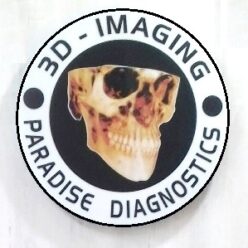Oral and maxillofacial pathology tests, which include diagnostic procedures such as biopsies, imaging studies, and laboratory tests, offer several benefits in the field of dentistry and healthcare. These tests are crucial for the identification, diagnosis, and management of various diseases and conditions affecting the oral and maxillofacial regions. Here are some of the key benefits:
Early Detection of Diseases:
Oral and maxillofacial pathology tests contribute to the early detection of diseases and abnormalities in the oral cavity, jaws, and related structures. Early diagnosis often leads to more effective treatment and improved outcomes.
Definitive Diagnoses:
Biopsy and histopathological examinations provide definitive diagnoses of oral lesions and conditions. This is essential for developing targeted and appropriate treatment plans.
Cancer Screening and Diagnosis:
Oral pathology tests, including biopsies, play a crucial role in the screening and diagnosis of oral cancers. Early detection of oral cancer can significantly improve the chances of successful treatment.
Treatment Planning:
The results of pathology tests guide dentists, oral pathologists, and other healthcare professionals in developing personalized and effective treatment plans for patients with oral diseases. This may involve surgery, medication, or other interventions.
Risk Assessment:
Pathology tests help assess the risk factors associated with certain oral diseases, allowing for the identification of individuals who may be at higher risk. This information can guide preventive measures and regular monitoring.
Monitoring Disease Progression:
For chronic conditions or diseases with the potential for recurrence, pathology tests enable healthcare providers to monitor the progression of the disease over time. This ongoing assessment helps in adjusting treatment strategies as needed.
Differentiating Benign and Malignant Lesions:
Oral pathology tests are instrumental in distinguishing between benign and malignant lesions. This differentiation is crucial for determining the appropriate course of action and urgency in treatment.
Guiding Surgical Procedures:
When surgical intervention is required, pathology tests help guide the surgeon by providing information about the nature and extent of the pathology. This ensures more precise and targeted surgical procedures.
Understanding Genetic and Developmental Disorders:
Some oral pathologies are associated with genetic or developmental factors. Pathology tests contribute to a better understanding of these conditions and aid in genetic counseling when necessary.
Research and Education:
Pathology tests contribute to ongoing research in the field of oral and maxillofacial pathology, advancing knowledge and improving diagnostic techniques. Additionally, they play a role in educating healthcare professionals and students in the dental and medical fields.
It’s important to note that the benefits of oral and maxillofacial pathology tests are context-specific and depend on the individual patient’s condition. The tests are typically performed based on clinical indications and the specific needs of the patient. Regular dental check-ups and screenings are crucial for maintaining oral health and facilitating the early detection of potential issues.
